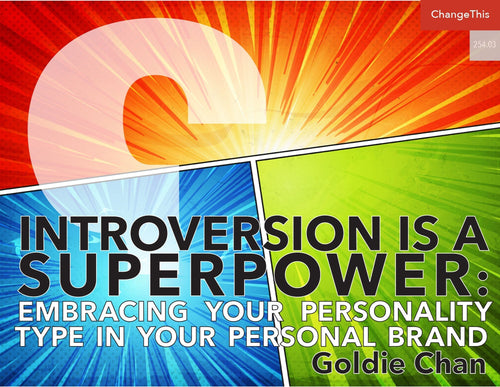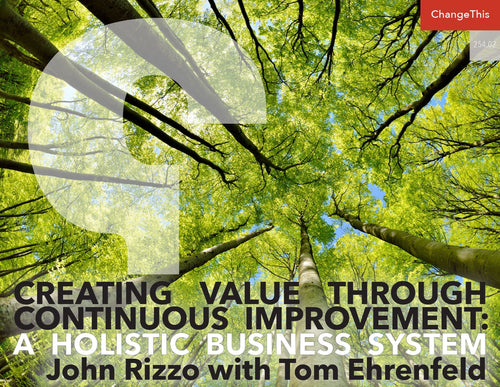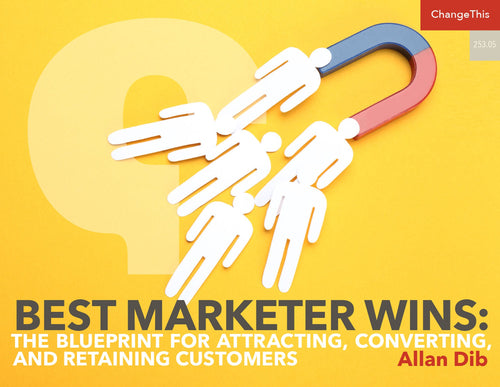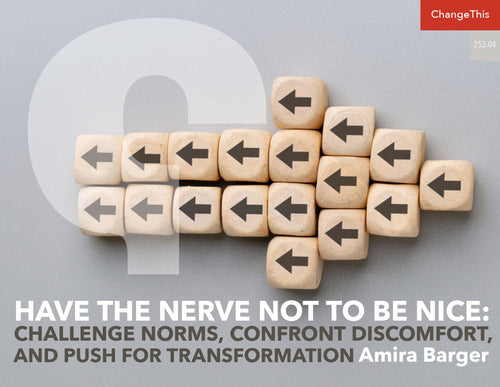Competition Is the Thief of Joy
We are socialized to believe that competition makes us better, stronger, and more successful in life. What if that belief is wrong? What if there is a better way for all of us to succeed, one focused on "the gains of a community over individual wins." In Uncompete, Ruchika Malhotra offers data, others' stories, and her own experiences to make a convincing case for coalition and solidarity.

To compete–or not–is a choice.
Nadya and I started our job at the magazine on the very same day. She’d had a nontraditional route through customer service to land the job, whereas I had dreamed of being a journalist for years. On our first day, our boss told us how much this team valued collaboration and kinship, and that office socials were a big part of the culture. Nadya and I ramped up together, bouncing ideas off each other and cheering each other on—being on the launch team of a brand-new magazine for an established organization was no small feat. I was excited to have a “work wife” well before the term became trendy, and we shared personal and professional wins and grouses with each other.
But as the weeks went on, I started noticing that Nadya would often meet with my boss and colleagues alone, and also leave me out of emails. When I entered our meetings, she would switch over to Mandarin, a language that everyone else on the team spoke but I didn’t, for the pre-meeting banter. One day, my boss called me over to share a cool new idea that Nadya had impressed the team with—an advice column where people could write in for career solutions. It was a smart idea that focus groups were already showing would increase readership. It would be a fun column with great visuals, one that would help transform the bureaucratic, boring perception of the organization.
The only problem? That idea was mine.
Over two decades have passed since that incident and that job. In that time, I’ve learned a heck of a lot about how competition and rivalry show up in our professional and personal lives. We’ve all strategized about how to get promoted by beating out our rivals. We’ve rooted for our favorite Kardashian on reality TV as they throw a member of their family under the proverbial bus so that they emerge as more popular. We’ve secretly relished when a friend who always seems to be winning at life confesses she’s going through a rough patch because that somehow makes us feel like we’re better.
Incidents like these are so common and acceptable that we rarely give them a second thought. In fact, we’re deeply suspicious of people who aren’t constantly trying to strive to improve themselves and get a leg up against others. It’s not enough to have gotten a new job—the natural next step is to already be planning when and how to get promoted. It doesn’t matter that you trained hard to run a marathon; we’ll immediately be asked when our next one is. The next time, we’ll not only be trying to beat our last running time; maybe we could also qualify for one of the famous city marathons and compete against others as well? On and on it goes.
Even if it’s crossed our minds briefly to question this narrative, we still fall back on the idea that there simply isn’t another way to live, advance, and succeed. Competition is a fact of life, an unspoken rule that most of us don’t even think to challenge, no matter where in the world we live, who we are, who we love. It’s in the air that we breathe and the water we swim in: We’re paddling so hard that we don’t even have the bandwidth to understand how strong the tides are and what’s at stake. It surrounds us in every facet of our lives, and we automatically believe that staying competitive is the surest way to succeed. So pervasive is this narrative that we’ve simply accepted the validity of long-held beliefs like these: Competition makes me better, smarter, more innovative. If I don’t compete, others will get ahead. I can’t escape it anyway; humans are biologically hardwired to compete.
But what if this isn’t true? What if the cost of trying to constantly get ahead is far too high? What if competition isn’t the best way or the only way to progress? And most of all, what if we started questioning who really wins when we compete? We don’t leave behind competition and rankings when we graduate from school or college. A competition mindset and approach not only follow us all our lives but also become more insidious, harmful, and toxic as we age. I know this because I long upheld the idea of pushing myself hard to be the very best to get ahead, no matter the cost—mental, physical, financial, spiritual. That is, until a series of eye-opening incidents occurred in my life to show me not only how flawed the idea that outcompeting others would get me ahead but that it was also irrevocably burning me out.
In economics we’re taught that there’s a scarcity of opportunities and resources, so we must compete for them. From wealth to opportunities to educational advancement to status, recognition, and power, we’ve been indoctrinated to be in constant rivalry with others, that the only way to win is to ensure that your opponent loses. We’re taught to believe that we must cajole, elbow, fight, and ultimately take down our opponent at all costs and that winning justifies all means. Win a race, the ranking of “best of,” the contract, the promotion, the unspoken rules in society of who is more attractive, has a bigger home and paycheck, whose kids are more brilliant… you can see that the competition is nonstop.
But we rarely admit that this mindset has serious downsides. That competition is making us sick, anxious, exhausted, isolated, and worse off in every way. Sure, sometimes there’s a short-term gain to being competitive: Maybe a new product is created or someone works tremendously hard to qualify for a marathon. But in the long term, always-and-at-all-costs competition depletes much more than the purported upsides we’re conditioned to believe in. Almost no one truly wins in a competitive system.
The deleterious impact of competition is far-reaching on the individual, the community, the society, and the environment. For women and people of color, competition is both exploited to divide us, and its impact proliferates significantly more harm in our lives compared with our dominant-group peers. In any society built on competition, rather than supporting humans as they navigate very human experiences such as childbirth, caregiving, disability, and chronic illness, we literally shut them out for not being “hardworking” enough. If they raise the alarm about experiencing sexism, racism, ableism, or any other form of bias in the workplace, we write them off for being timid and therefore not wanting to win badly enough to ignore what ends up being even egregious harm. We’re often pitted against one another to compete for scraps, which has us competing against the very people we should be building coalition and solidarity with.
And it doesn’t end in the workplace, either. Societally, competition has been particularly harmful for those of us most disenfranchised by racism, patriarchy, and oppression, all of which are thriving as functions of the hypercompetitive, late-stage capitalist societies that we find ourselves in. Competition has had disastrous consequences on a personal, organizational, and societal level, and the myths that uphold it pose significant challenges to creating a more just, equal, and antiracist world. We are living a deeply polarized world where a winner-take- all competitive political system has given rise to charlatans, demagogues, and oppressive dictators. Add to the fact that far too many of us are too overwhelmed trying to keep up in a hypercompetitive system and consequently are unable to fully participate in our civic duties, which has contributed to the steady erosion of our democracy. All these factors have also ravaged the environment—profit over planet has created and exacerbated a climate crisis.
If you’re wondering, I didn’t come to this work by chance. My interest in competition is deeply influenced by my role as a diversity, equity, and inclusion (DEI) practitioner. I’ve advised organizations big and small—many are household names—on how to create a culture that supports and empowers women, people of color, and people from other historically excluded backgrounds, often at the intersection of multiples of these. My company does this through data collection and through awareness and education regarding how bias and exclusion have long-lasting impacts on the hiring, retention, and advancement of nondominant groups of people.
In my practice, one of the consistent lines of pushback I hear from corporate leaders, no matter how well-intentioned they are, is that DEI interventions mustn’t ruffle the feathers of people already established within the organization: typically, white men. “We believe in the importance of women, people of color, and all marginalized groups making gains,” I hear. And then, invariably, “But… we fear that a women’s sponsorship initiative or trying to hire more people of color would be seen as unfair for the white men who’ve worked so hard to get here.”
Never mind that any modest gains made by historically marginalized communities would come nowhere close to overturning centuries of systemic oppression. What we’re seeing now—a pernicious, vicious attack on corporate and educational DEI programs across the United States—is basically a turbocharged version of this belief. In my practice, I’m constantly being reminded how pervasive the belief is that one community’s gains can come only through another’s losses—that even equality is a zero-sum game.
It’s in the air that we breathe and the water we swim in: We’re paddling so hard that we don’t even have the bandwidth to understand how strong the tides are and what’s at stake.
In my own way, I also bought into that narrative for a long time; I had my sharp elbows out earlier in my career to succeed as an ambitious woman. I’m often asked why women don’t support one another or are often perceived as being maliciously competitive with one another. Are women just naturally more competitive than men? The data shows that we’re not. But we are exponentially more harmed by competition in the context of a sexist, racist, and biased society. In a gender-imbalanced environment, women are signaled that they should make rivals of other women to succeed for that one coveted spot. So they do, sometimes viciously and devastatingly. And to uphold the power dynamics fostered by racism and competition, we often see white women isolating women of color. In all my work, I’ve looked at how systems of oppression create challenges to inclusive, equitable, and diverse workplaces, rather than individuals being to blame.
Personally, I believe we are seeing the worst of this kind of competition, exacerbated by the comparison fueled by new digital technologies and social media platforms. Particularly for humans socialized as girls and women, a patriarchal system that has pitted us against one another continues to fan the flames of a competitive mindset and perpetuate an endless cycle of comparison. These kinds of behaviors are especially toxic in a world where social media algorithms depend on us competing against one another and comparing our regular lives with other people’s “highlight reels.” Constant competition can spread wide-ranging feelings of sadness, pain, and trauma on a global level. Why are we so likely to compare ourselves to another person? Why are we always looking over to the proverbial grass on the other side to see if it is indeed greener? Where do these cycles of competition come from?
Our minds have long been colonized by systems of oppression—the idea that the “best” person will win, that meritocracy is real and competition is natural. My book Uncompete intends to carefully dismantle these long-held beliefs. There is another way to live, and when we actively choose this other way, individual happiness, joyous communities, and a society where suffering isn’t a measure of success are possible.
Uncompete is built on the unyielding belief that there’s more than enough room for all of us to succeed. If competition tells us that two or more parties who want the same thing need to fight it out for one to be declared the winner, to uncompete tells us the exact opposite. It requires us to intentionally push back on the idea that in every situation there are only finite opportunities and just one winner. To choose collaboration over competition, abundance over scarcity, long-term gains over short-term wins. That success must be measured on the gains of a community over individual wins.
To uncompete doesn’t mean never taking a job or forgoing ambition or a desire to build wealth. On the contrary, when we uncompete, we often find more wealth and opportunities come our way, as my own story and those of others will illustrate in these pages. But it does means opting out of competition that rests on a zero-sum, scarcity, winner- take-all, any-means-necessary approach. We must deliberately resist the many beliefs about success we’ve been conditioned with so that there can be a path to liberation, opportunity, and peace for all that has long evaded us.
From UNCOMPETE by Ruchika T. Malhotra, published by Viking, an imprint of Penguin Publishing Group, a division of Penguin Random House, LLC. Copyright © 2025 by Ruchika Tulshyan.
About the Author
Ruchika T. Malhotra is the founder of Candour, a global inclusion strategy firm that has worked with some of the world’s biggest organizations. A former business journalist, she is now a regular contributor to Harvard Business Review. Her writing has appeared in The New York Times, Forbes, Bloomberg, The Seattle Times, and more. She has held adjunct faculty positions at the University of Washington and Seattle University and is the author of Inclusion on Purpose: An Intersectional Approach to Creating a Culture of Belonging at Work, MIT Press’s top-selling book of 2022.
Learn more at ruchika.co.











































